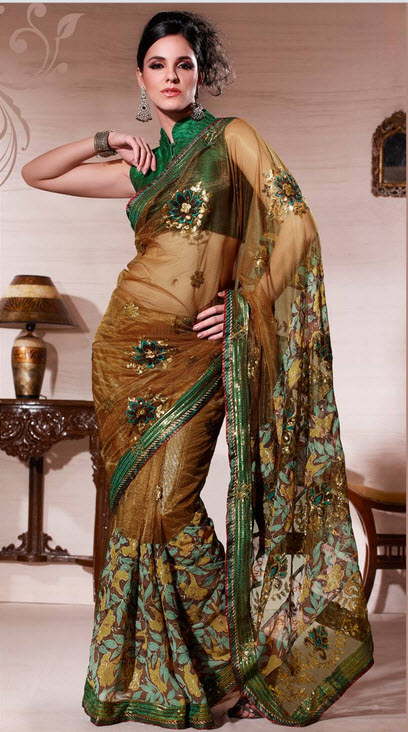Pakistan Bridal Pic Dresses Suits Mehndi Designs Pic Jewellery Mehndi Lehengas 2013
Source:Google.com.pk
Pakistani Wedding
1. Engagement or Mangni does not qualify the future spouses to go out together, even if the parents consent. Man and woman become permissible for each other only after the performance of Nikah.
2. Dowry
The unislamic system of demanding and accepting dowry must be avoided at all costs. Shariah does not make any expense incumbent on the bride/bride's parents. Even the marriage expenses, it is recommended are to be borne by the bridegroom.
However, the bride can bring whatever she wants of her free will, and it will always belong to her.
3. Other Unislamic Customs
Many other unislamic customs have crept into the marriage ceremony of some Muslims. These customs are either borrowed from non-Muslim cultures or continue because they are established in past generations. One must avoid them if they are against the Shariah, even if some people are displeased. Other customs like the breaking of coconut etc. also do not feature among the Islamic rituals. All actions, customs etc. which show disrespect to Islam or weaken the importance of Islam have to be avoided.
4. Haraam Acts
Some of the rituals in marriage ceremonies are absolutely haraam like the playing of music. It is also haram for ladies to go for mixed gatherings without proper hijab. Such things invite divine wrath and take away the blessings of this auspicious occasion.
In the Islamic Law, marriage is an 'aqd, a contract. The components of this contract are as follows:
A. Proposal
In Islam the process of proposal by a man to a woman for her hand in marriage, or for that matter, to her family, is encouraged. Islam considers this natural, and recommends it as an act of respectability and dignity for women.
B. Mahr
And the intending husband is asked to offer a Mahr to the bride.
The Quran says, And give women their Mahr as a free gift, but if they of themselves be pleased to give up to you a portion of it, then eat it with enjoyment and with wholesome result. [28]
The following points are worthy of consideration:
• Mahr must be agreed upon by the marrying partners themselves, not by parents.
• Mahr is her right, to which her husband remains indebted.
• It is a free gift and not her price.
The Mahr may be cash, kind or non-material (like training or teaching something). It can be paid up front or can be in form of promise to pay upon demands decided prior to the solemnization of marriage.3 Moajjal (immediate), Muwajjal and Indat-talab (on demand).
However, it is much recommended to pay it before or at the time of Nikah itself.
Mooh Dikhai is the ceremony of first time “showing of the face” after the Nikah. The couple is made to see each other in the mirror and the bride unveils her face that she keeps hidden during the Nikah. The custom of Mooh Dikhai is also called “Aarsi Musshaf.” The bride and groom share a piece of sweet fruit, such as a date and family and friends congratulate the couple and offer gifts. Dinner is served to the guests. The sisters, friends, and female cousins of bride take this opportunity to steal the groom's shoes and demand a sum of money for shoes. This is very popular custom and groom usually carries a lot of cash, due to the popularity of this custom. He pays money to get back his shoes and girls divide the money among themselves.
Ruksati is the ceremony to bid farewell to the bride before her departure to the groom's house. She says goodbye to her parents, close friends and family. The Quran is held over her head as a blessing. It’s a pretty touching moment. Although this practice is un-Islamic but a lot of Pakistani families have come to adopt it.
Several traditional games are played at groom’s house. A tray full of a mixture of water and milk is placed before the couple and a ring is thrown into the mixture and husband and wife are asked to find the ring. The one who finds the ring is considered winner and dominant partner in the relationship. The couple is asked to untie the “ganas” (thick strings) that were tied on their writs before wedding. The one who unties it first is considered the dominant partner in the relationship. Bride eats kheer (sweet, pudding-type desert) out of the groom’s hand. This customs are designed to make the couple more intimate before the physical relationship. Groom washes the feet of the bride in a basin of water that is sprinkled into the four corners of the house. It’s believed that this brings wealth, prosperity and luck into the home.
Chauthi is the custom of bringing the bride back to her parents' home the next day, or on the fourth day after the wedding (depending on family tradition). Usually bride's brothers perform the Chauthi and goes to fetch their sister home.
Walima is ceremony to announce the wedding to community and friends. It’s a grand reception hosted by the groom's parents. Relatives, friends and community people are invited to the reception and wedding is celebrated with great fun and festivities.









No comments:
Post a Comment